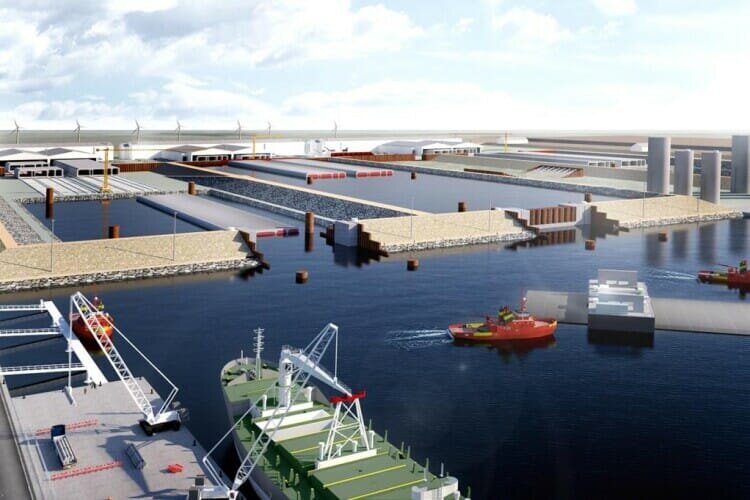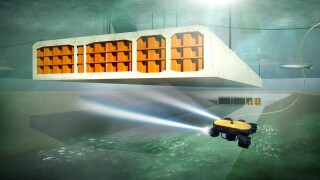
An international joint venture has begun construction of what will be the world’s longest immersed tunnel.
The Femern project involves construction of an 18km combined road and rail tunnel linking Germany and Denmark.
The tunnel, which will 9m high and 43m wide, is being built by the Femern Link Contractors. The joint venture comprises Vinci Construction Grands Projets (lead company for the two contracts covering construction of the immersed tunnel and the tunnel precast element factory), Per Aarsleff Holding (lead company for the third contract, which covers the tunnel access ramps), Soletanche Bachy International (a Vinci Construction subsidiary), CFE, Dredging International, Wayss & Freytag Ingenieurbau, Max Bögl Stiftung & Co, BAM Infra and BAM International. The consultant is Cowi.
The project will have a workforce of 2,000 employees at the peak of activity.
Works have started on the Danish side, with the construction of the factory that will manufacture the 200m precast concrete box girders elements that will be immersed to form the fixed link between Denmark’s Lolland Falster region and Germany’s Schleswig Holstein Land.
Hakim Naceur, project director for the tunnel north and tunnel south contract, said: ”We have been looking forward to this moment and are very pleased that this magnificent project can now be realised. It will be a great achievement when complete – an achievement which cannot be done without the help, commitment and cooperation of the owner Femern A/S and of our partners, subcontractors and suppliers and of all the German and Danish stakeholders.”

Christian Lundhus, project director for the tunnel, portal and ramps contract, said: “Our team which is growing day by day is excited to be part of the project and is already very busy. As of today, we have much focus on the design, the site in Rødby is being prepared for our offices, village and not least the huge factory which is to be used for constructing the tunnel elements.”
The new infrastructure will shorten the journey between the German and Danish coasts to just seven minutes by train and 10 minutes by car from the current travel time of one hour by ferry or a 160 km detour by car. Completion is scheduled for mid-2029.
